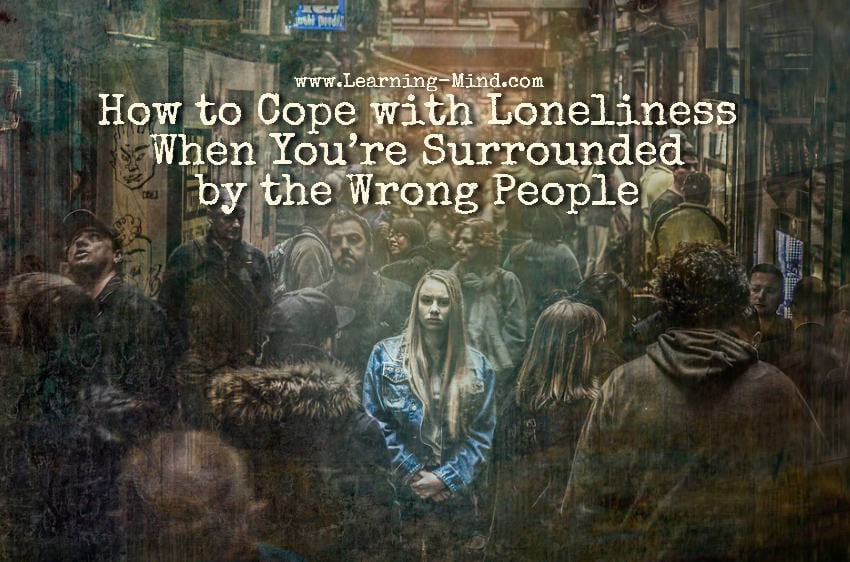
Being alone and being lonely are two different things entirely. Learning how to cope with loneliness when you’re not physically alone may seem impossible, but surprisingly, it’s not.
One of the biggest misconceptions of being alone is the idea that you are lonely. This is far from the truth. Just because you enjoy alone time does not mean you are lonely by any measure. Also, loneliness can occur when you’re surrounded by people, and you still need to cope with this loneliness. This simply means you are in a group of the WRONG people. With this bit of truth, you can start to understand how to operate correctly in life.
First of all, we must understand the differences in enjoying alone time and feeling lonely. Although it may seem like the same thing, it’s not. One is a state of being while the other is a feeling, and there is much more to grasp as well.
The first step to coping with loneliness when you’re surrounded by the wrong sort of people is to remember what loneliness means. Loneliness does not come when you are alone, and with no “special someone” to share life.
No, loneliness comes when there is no connection. You can be in a group of 20 people and still feel desperately lonely. They might not understand you, they might make you feel awkward and out of place, and in turn, you can begin to feel lonely. To understand is to begin the healing. Remember that.
The most obvious way to cope with loneliness in a crowd of people is to get away from that crowd. Yes, it might seem backward, but it really makes perfect sense.
If certain people make you uncomfortable, then remove yourself from the crowd. Try being alone for a little while and see if your loneliness disappears. You may find yourself making connections in an empty room. These connections may grow from the relationship with yourself.
No matter how lonely you may feel, surrounded by the wrong people, you can still stay firm in your self-esteem. If the crowd makes you feel negative, then look them in the eye and hold your posture. Make sure you let them know that despite how they may see you, or the lack of connection, you will not let them take away your power.
When loneliness surfaces in a group of people, understand that this only means these people aren’t there for you. What they say or do has no bearing on how you see yourself. In fact, you may be the light that these individuals need in their lives to make them feel more substantial. Remember this as well.
Although you might be surrounded by people who make you feel lonely, make the most of the situation. Yes, you might prefer being alone, but always be willing to try. Pay close attention to the small groups of people who make you feel bad about yourself, and avoid these people entirely. Make sure they understand how they are making you feel.
Gravitate toward the people who have potentially good vibes. Although none of the people in the crowd may alleviate your loneliness, you can still choose the lesser evils. Do this, and meanwhile, appreciate your unique qualities.
Although you may be around the wrong types of people, you can still try to find any connections possible. The thing to remember is not to pressure yourself into making those connections. Try, but if they aren’t there, then back off.
It’s okay to prefer being alone, and who knows, there could be someone lost in the crowd that hates the crowd as much as you do. If not, then accept what is and whether the situation till you are alone again.
Simply put, remember the truth about loneliness. Loneliness does not come when you’re alone. In fact, some of the most powerful revelations have been discovered during the time spent alone.
Appreciate self-time just as much as time with friends, and you will strengthen both your mind and emotions. Who knows, maybe you will find it easier to be around those who you just don’t’ understand. When the time comes that you’re surrounded by the “wrong” people, you just might be able to make the best of it!
The key to not being lonely around the wrong people: Learning to appreciate being alone as well. It’s just that simple.
References: